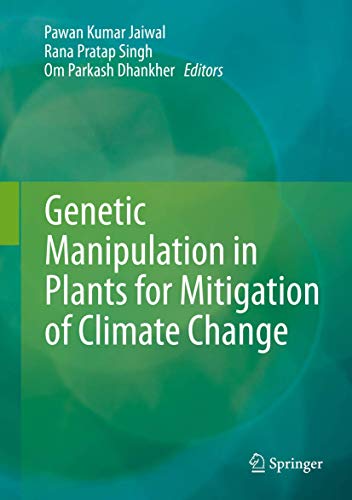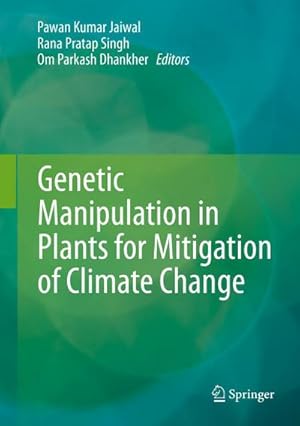jaiwal pawan kumar singh rana (7 Ergebnisse)
Suchfilter
Produktart
- Alle Product Types
- Bücher (7)
- Magazine & Zeitschriften (Keine weiteren Ergebnisse entsprechen dieser Verfeinerung)
- Comics (Keine weiteren Ergebnisse entsprechen dieser Verfeinerung)
- Noten (Keine weiteren Ergebnisse entsprechen dieser Verfeinerung)
- Kunst, Grafik & Poster (Keine weiteren Ergebnisse entsprechen dieser Verfeinerung)
- Fotografien (Keine weiteren Ergebnisse entsprechen dieser Verfeinerung)
- Karten (Keine weiteren Ergebnisse entsprechen dieser Verfeinerung)
- Manuskripte & Papierantiquitäten (Keine weiteren Ergebnisse entsprechen dieser Verfeinerung)
Zustand Mehr dazu
- Neu (5)
- Wie Neu, Sehr Gut oder Gut Bis Sehr Gut (1)
- Gut oder Befriedigend (Keine weiteren Ergebnisse entsprechen dieser Verfeinerung)
- Ausreichend oder Schlecht (Keine weiteren Ergebnisse entsprechen dieser Verfeinerung)
- Wie beschrieben (1)
Einband
Weitere Eigenschaften
- Erstausgabe (Keine weiteren Ergebnisse entsprechen dieser Verfeinerung)
- Signiert (Keine weiteren Ergebnisse entsprechen dieser Verfeinerung)
- Schutzumschlag (Keine weiteren Ergebnisse entsprechen dieser Verfeinerung)
- Angebotsfoto (4)
Sprache (1)
Gratisversand
- Kostenloser Versand nach USA (Keine weiteren Ergebnisse entsprechen dieser Verfeinerung)
Land des Verkäufers
Verkäuferbewertung
-
Genetic Manipulation in Plants fpr Mitigation of Climate Change.
Anbieter: Universitätsbuchhandlung Herta Hold GmbH, Berlin, Deutschland
EUR 18,00
Währung umrechnenEUR 30,00 für den Versand von Deutschland nach USAAnzahl: 1 verfügbar
In den WarenkorbXVI, 241 p. Hardcover. Versand aus Deutschland / We dispatch from Germany via Air Mail. Einband bestoßen, daher Mängelexemplar gestempelt, sonst sehr guter Zustand. Imperfect copy due to slightly bumped cover, apart from this in very good condition. Stamped. Stamped. Sprache: Englisch.
-
Genetic Manipulation in Plants for Mitigation of Climate Change
Anbieter: Revaluation Books, Exeter, Vereinigtes Königreich
EUR 40,55
Währung umrechnenEUR 28,76 für den Versand von Vereinigtes Königreich nach USAAnzahl: 1 verfügbar
In den WarenkorbHardcover. Zustand: Brand New. 241 pages. 10.00x7.00x0.75 inches. In Stock.
-
Genetic Manipulation in Plants for Mitigation of Climate Change
Anbieter: Buchpark, Trebbin, Deutschland
EUR 16,20
Währung umrechnenEUR 105,00 für den Versand von Deutschland nach USAAnzahl: 1 verfügbar
In den WarenkorbZustand: Sehr gut. Zustand: Sehr gut | Sprache: Englisch | Produktart: Bücher.
-
Genetic Manipulation in Plants for Mitigation of Climate Change
Verlag: Springer India, Springer India Mär 2018, 2018
ISBN 10: 8132238095 ISBN 13: 9788132238096
Sprache: Englisch
Anbieter: buchversandmimpf2000, Emtmannsberg, BAYE, Deutschland
EUR 160,49
Währung umrechnenEUR 60,00 für den Versand von Deutschland nach USAAnzahl: 2 verfügbar
In den WarenkorbTaschenbuch. Zustand: Neu. Neuware -This book presents a detailed overview and critical evaluation of the state of the art and latest approaches in genetic manipulation studies on plants to mitigate the impact of climate change on growth and productivity. Each chapter has been written by experts in plant-stress biology and highlights the involvement of a variety of genes/pathways and their regulation in abiotic stress, recent advances in molecular breeding (identification of tightly liked markers, QTLs/genes), transgenesis (introduction of exogenous genes or changing the expression of endogenous stress- responsive genes) and genomics approaches that have made it easier to identify and isolate several key genes involved in abiotic stress such as drought, water lodging/flooding, extreme temperatures, salinity and heavy-metal toxicity.Food and nutritional security has emerged as a major global challenge due to expanding populations, and cultivated areas becoming less productive as a result of extreme climatic changes adversely affecting the quantity and quality of plants. Hence, there is an urgent need to develop crop varieties resilient to abiotic stress to ensure food security and combat increased input costs, low yields and the marginalization of land.The role of GM crops in poverty alleviation, nutrition and health in developing countries and their feasibility in times of climate change are also discussed. Recent advances in genetechnologies have shown the potential for faster, more targeted crop improvements by transferring genes across the sexual barriers. The book is a valuable resource for scientists, researchers, students, planners and industrialists working in the area of biotechnology, plant agriculture, agronomy, horticulture, plant physiology, molecular biology, plant sciences and environmental sciences.Springer Verlag GmbH, Tiergartenstr. 17, 69121 Heidelberg 260 pp. Englisch.
-
Genetic Manipulation in Plants for Mitigation of Climate Change
Verlag: Springer India, Springer India Jan 2016, 2016
ISBN 10: 8132226607 ISBN 13: 9788132226604
Sprache: Englisch
Anbieter: buchversandmimpf2000, Emtmannsberg, BAYE, Deutschland
EUR 160,49
Währung umrechnenEUR 60,00 für den Versand von Deutschland nach USAAnzahl: 2 verfügbar
In den WarenkorbBuch. Zustand: Neu. Neuware -This book presents a detailed overview and critical evaluation of the state of the art and latest approaches in genetic manipulation studies on plants to mitigate the impact of climate change on growth and productivity. Each chapter has been written by experts in plant-stress biology and highlights the involvement of a variety of genes/pathways and their regulation in abiotic stress, recent advances in molecular breeding (identification of tightly liked markers, QTLs/genes), transgenesis (introduction of exogenous genes or changing the expression of endogenous stress- responsive genes) and genomics approaches that have made it easier to identify and isolate several key genes involved in abiotic stress such as drought, water lodging/flooding, extreme temperatures, salinity and heavy-metal toxicity.Food and nutritional security has emerged as a major global challenge due to expanding populations, and cultivated areas becoming less productive as a result of extreme climatic changes adversely affecting the quantity and quality of plants. Hence, there is an urgent need to develop crop varieties resilient to abiotic stress to ensure food security and combat increased input costs, low yields and the marginalization of land.The role of GM crops in poverty alleviation, nutrition and health in developing countries and their feasibility in times of climate change are also discussed. Recent advances in genetechnologies have shown the potential for faster, more targeted crop improvements by transferring genes across the sexual barriers. The book is a valuable resource for scientists, researchers, students, planners and industrialists working in the area of biotechnology, plant agriculture, agronomy, horticulture, plant physiology, molecular biology, plant sciences and environmental sciences.Springer Verlag GmbH, Tiergartenstr. 17, 69121 Heidelberg 260 pp. Englisch.
-
Genetic Manipulation in Plants for Mitigation of Climate Change
Verlag: Springer India, Springer India, 2018
ISBN 10: 8132238095 ISBN 13: 9788132238096
Sprache: Englisch
Anbieter: AHA-BUCH GmbH, Einbeck, Deutschland
EUR 164,49
Währung umrechnenEUR 62,78 für den Versand von Deutschland nach USAAnzahl: 1 verfügbar
In den WarenkorbTaschenbuch. Zustand: Neu. Druck auf Anfrage Neuware - Printed after ordering - This book presents a detailed overview and critical evaluation of the state of the art and latest approaches in genetic manipulation studies on plants to mitigate the impact of climate change on growth and productivity. Each chapter has been written by experts in plant-stress biology and highlights the involvement of a variety of genes/pathways and their regulation in abiotic stress, recent advances in molecular breeding (identification of tightly liked markers, QTLs/genes), transgenesis (introduction of exogenous genes or changing the expression of endogenous stress- responsive genes) and genomics approaches that have made it easier to identify and isolate several key genes involved in abiotic stress such as drought, water lodging/flooding, extreme temperatures, salinity and heavy-metal toxicity.Food and nutritional security has emerged as a major global challenge due to expanding populations, and cultivated areas becoming less productive as a result of extreme climatic changes adversely affecting the quantity and quality of plants. Hence, there is an urgent need to develop crop varieties resilient to abiotic stress to ensure food security and combat increased input costs, low yields and the marginalization of land.The role of GM crops in poverty alleviation, nutrition and health in developing countries and their feasibility in times of climate change are also discussed. Recent advances in gene technologies have shown the potential for faster, more targeted crop improvements by transferring genes across the sexual barriers. The book is a valuable resource for scientists, researchers, students, planners and industrialists working in the area of biotechnology, plant agriculture, agronomy, horticulture, plant physiology, molecular biology, plant sciences and environmental sciences.
-
Genetic Manipulation in Plants for Mitigation of Climate Change
Anbieter: AHA-BUCH GmbH, Einbeck, Deutschland
EUR 166,62
Währung umrechnenEUR 63,76 für den Versand von Deutschland nach USAAnzahl: 1 verfügbar
In den WarenkorbBuch. Zustand: Neu. Druck auf Anfrage Neuware - Printed after ordering - This book presents a detailed overview and critical evaluation of the state of the art and latest approaches in genetic manipulation studies on plants to mitigate the impact of climate change on growth and productivity. Each chapter has been written by experts in plant-stress biology and highlights the involvement of a variety of genes/pathways and their regulation in abiotic stress, recent advances in molecular breeding (identification of tightly liked markers, QTLs/genes), transgenesis (introduction of exogenous genes or changing the expression of endogenous stress- responsive genes) and genomics approaches that have made it easier to identify and isolate several key genes involved in abiotic stress such as drought, water lodging/flooding, extreme temperatures, salinity and heavy-metal toxicity.Food and nutritional security has emerged as a major global challenge due to expanding populations, and cultivated areas becoming less productive as a result of extreme climatic changes adversely affecting the quantity and quality of plants. Hence, there is an urgent need to develop crop varieties resilient to abiotic stress to ensure food security and combat increased input costs, low yields and the marginalization of land.The role of GM crops in poverty alleviation, nutrition and health in developing countries and their feasibility in times of climate change are also discussed. Recent advances in gene technologies have shown the potential for faster, more targeted crop improvements by transferring genes across the sexual barriers. The book is a valuable resource for scientists, researchers, students, planners and industrialists working in the area of biotechnology, plant agriculture, agronomy, horticulture, plant physiology, molecular biology, plant sciences and environmental sciences.






